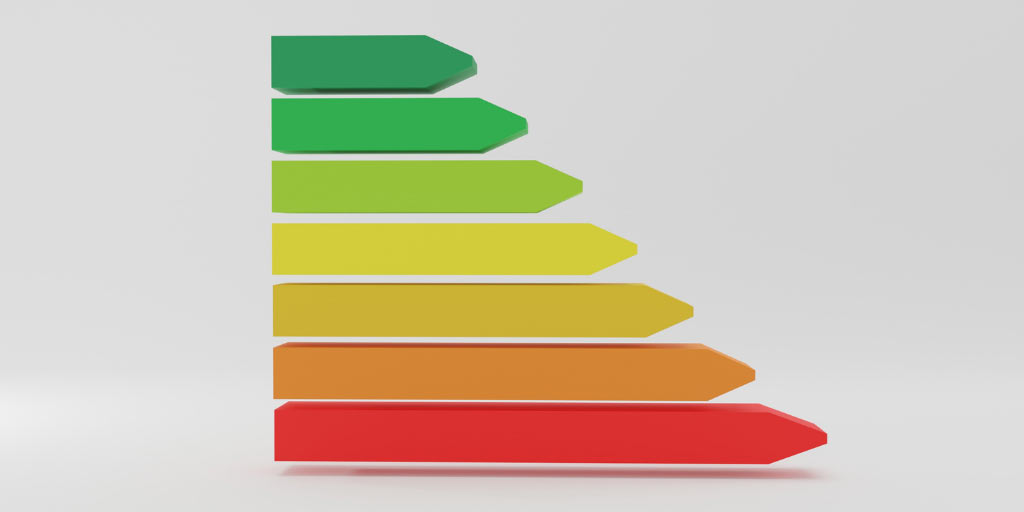This information should not be interpreted as financial, tax or legal advice. Mortgage and loan rates are subject to change.

Category: epc
The latest report from the financial services company Legal & General (L&G) reveals that double-glazing is the most common energy-saving measure that is utilised to improve property EPC rating, followed by roof insulation and wall insulation.
In the UK, where heating costs can be quite high, double glazed windows can significantly reduce energy bills for landlords and tenants.
This is because the insulation provided by double glazed windows means that less heat is required to maintain a comfortable temperature in the property.
As a result, properties are more energy-efficient, and tenants benefit from lower energy bills.
Double glazed windows can also reduce a property’s carbon footprint. This is because less energy is required to heat the property. As the UK aims to reach net-zero carbon emissions by 2050, making homes more energy-efficient is becoming increasingly important.
Energy-efficient double glazed windows can also improve the EPC rating of a property (by 5-10 points) as older windows account for up to 30% of heat loss in a home.
Therefore, upgrading from single glazing can significantly reduce heat loss and can make the property more attractive to tenants, as well as increasing its value and rental potential.
Research by L&G on energy efficiency methods
A Legal and General surveying team conducted research to identify popular saving measures that landlords can implement, to meet the growing demand for energy efficiency.
The research also revealed that solar panels, air source heat pumps, and smart energy were less commonly used, but could provide significant savings over the long term.
According to Legal and General, solar panels have a payback period of around 15 years, and air source heat pumps have a payback period of around 12 years.
Other methods to improve your EPC rating
There are several ways landlords can focus on upgrading their EPC rating, notable ones are:
- Loft insulation - lack of roof insulation may result in the loss of a home’s heat by up to 25%. Loft insulation of at least 270mm thick is required to make your home more energy-efficient. This type of insulation is available in different materials, such as fiberglass, mineral wool, cellulose, or sheep’s wool, and is both available in rolls and easy to install. It can increase your EPC rating increase by 10-15 points.
- Wall insulation – choosing the right type of wall insulation depends on the type of walls you have and your budget, but is a crucial step in improving your home’s energy efficiency and reducing heat loss, it could potentially increase your EPC rating by 5-20 points.
- Replacing older light bulbs to LED – energy-efficient lighting options are becoming more accessible and affordable that could potentially increase your EPC rating by 1-5 points.
- Boiler upgrade – A modern, efficient heating system is a crucial factor in achieving a good EPC rating and lowering the running costs of your home, it can potentially increase your property’s EPC rating by up to 40 points. You may be able to apply for Boiler Upgrade Scheme, to receive an upfront capital grant, as the government urges landlords and property owners to apply since there has been a lack of applicants.
- Hot water cylinder jacket – Insulating your hot water tank can be a cost-effective way to address the inefficiencies of your old boiler. Reducing heat loss from the water tank can slightly increase your EPC rating by 1-5 points.
- Renewable energy system – if you have exhausted all the other options to improve your EPC rating, installing a renewable energy system, such as solar panels, can significantly increase your score, while also making your home more environmentally friendly. Many local councils offer grants to help cover the cost of installation (potential EPC rating increase of 5-20 points).
Each method above could increase the EPC rating of your property by between 1 and 40 points, on a case-by-case basis
Shifting focus towards green homes
We have previously reported on another study from L&G, where their findings indicated a 34% increase in searches for eco-friendly homes, with buyers willing to pay a 10.5% premium for low-carbon properties.
Moreover, Legal & General’s Equity Economy Report also showed that 13% of surveyed homeowners were using equity from their property to pay for energy-efficiency measures.
The government’s “push” towards eco-homes
There is no doubt that the latest UK government’s proposal for rental properties to have an EPC rating of C or above by 2025 for new tenancies and 2028 for existing tenancies is also driving interest in energy-efficient home improvements.
Overall, the survey results indicate that buyers and homeowners are becoming more conscious of the energy efficiency of their homes, and many are already taking steps to improve their properties’ energy efficiency.
The fact that landlords are now prioritising improvements to their properties’ EPC ratings is a positive development.
Landlord survey, conducted by BVA BDRC, found that substantial amount of landlords were uncertain about the new EPC regulations.
Thus, the current trend of landlords focusing on EPC improvements and what is the best approach could indicate that they are becoming more focused on the EPC regulations and are taking steps to comply with them.
As consumers continue to develop a greater understanding of energy efficiency, L&G expects this trend to continue to rise in prominence.




